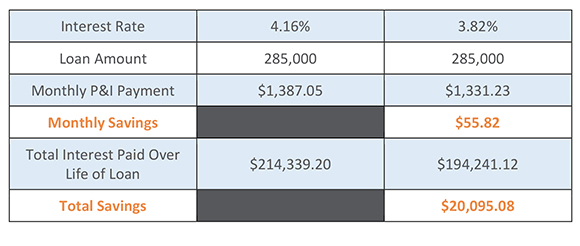Many of Global Mobility Solutions’ clients have transferees relocating to the United States from outside the country. Often, they will need a mortgage loan to buy a home. These transferees may not have established credit in the US. As a result, they will not have a credit profile that lenders can use to determine their creditworthiness.
GMS spoke with Michael Farner, an expert at Quicken Loans who agreed to share his advice and guidance on this topic.
How Can a Foreign National Obtain a Mortgage to Buy a Home in the US?
According to Michael Farner, if a foreign national has established credit in the US over a period of time long enough to have all three credit bureaus reporting, Quicken Loans would also be able to lend at that time.
Quicken Loans and other mortgage companies have a program to support foreign nationals who are relocating to the US and want to obtain a mortgage, but who have not established credit in the US. The program entails work on the part of Quicken Loans to create a credit profile for the foreign national.
Important Points to Note for Program Eligibility Include:
- There must be 0 credit established in the US to qualify for this program. In other words, the foreign national must not have obtained any other credit instrument. Examples may include a loan to buy a car or a credit card in the US.
- The foreign national must provide a social security number.
If the foreign national is eligible for the Quicken Loans program, the lender will then build a credit profile for the customer. To do this, the lender may examine the foreign national’s debt in their departure country. This examination will include:
- Information on payments for housing, including rent payments, showing 24 months of history for each credit reference.
- Information for three other “non-housing” debts that can establish payment histories. Examples may include insurance, utilities, or automobile loans. These debts must also show 24 months of history for each credit reference.
The foreign national may need to assist the lender in obtaining information. The lender may ask the foreign national to participate in a conference call with their departure country’s financial institution.
Once Quicken Loans gathers sufficient information, they will build a credit profile for the foreign national. The credit profile will determine how much they can borrow on a mortgage loan, and the terms of the mortgage.
What are the Features of a Mortgage for a Foreign National?
A mortgage for a transferee who will be relocating to the US is similar to a mortgage for any US-based customer who is seeking to buy a home.
For a foreign national, a mortgage will generally feature the following:
- Finances the purchase of an existing home.
- Length may be 15 or 30 years.
- Interest rate may be fixed or variable.
- Foreign national borrower makes principle and interest payments for the life of the mortgage.
- Mortgage is often sold to investors in the bond market.
Do Foreign National Transferees Need to Sell Their Current Home Before Applying for a New Mortgage?
Foreign national transferees who are relocating and who currently own a home in their departure country may want to keep their current home. Everyone’s situation is different, and what is possible depends on a number of factors:
- Is there a mortgage on the current home in the departure country?
- If yes, what is the amount of the current home mortgage?
- What are the amount and terms of the mortgage loan for the home in the US?
- Can the transferee obtain approval for the total debt load? This would include their current mortgage and the new mortgage loan in the US.
What does this mean?
Foreign national transferees who want to obtain a mortgage in the US to buy a home should review their current financial arrangements with a qualified lender. Transferees who have a mortgage on their current home in their departure country may be able to obtain mortgage for a home in the US. However, this depends on their financial circumstances. Importantly, transferees should understand that they must obtain approval for the total amount of current mortgage debt and the new mortgage loan in the US.
What should employers do?
Employers with foreign national transferees looking to buy a home in the US should direct them to speak with qualified lenders and financial advisors for guidance. Employers should also review their relocation policies to determine if enhancements can be made to allow for exceptions that may arise from foreign national transferees who want to obtain a mortgage in the US.
Conclusion
Global Mobility Solutions’ team of corporate relocation experts has helped thousands of our clients understand how to communicate to foreign national transferees any issues related to obtaining mortgages to purchase a home in the US. Therefore, our team can help your company understand how best to proceed by providing guidance to foreign national transferees on obtaining information from qualified lenders and financial advisors.
Contact our experts online to discuss your company’s relocation program needs, or give us a call at 800.617.1904 or 480.922.0700 today.
GMS is sharing public knowledge and can help companies more clearly understand mortgage loans for foreign national relocations. However, GMS is not a CPA firm or a lender, and is not giving financial advice. Everyone’s financial situation is different; individuals and employers should consult their lenders and financial advisors prior to making any decisions.



